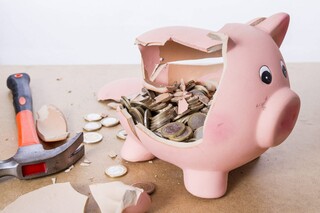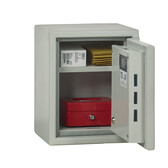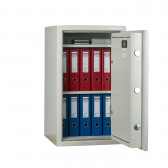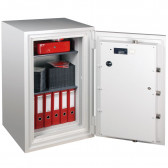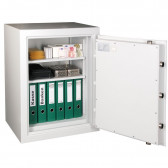Bankers have been arguing for years not to keep cash in the proverbial safe deposit box. However, some of them have started to openly say that they should not invest all their capital in banks either. This is due to the uncertain situation on the financial markets and small profits from deposits and investments. We suggest how to store money at home so that it is completely safe.
Life savings hidden in the flat will certainly not bring big profits. Over time, their value decreases under the influence of inflation and they do not multiply, because money "does not work" on interest. It is no different when we place capital in a savings account or deposit. The policy of low, and in some cases even negative, interest rates of the Central Banks means that keeping cash in a bank does not allow for attractive earnings, and the Bank Guarantee Fund guarantees the return of funds in case of bankruptcy of a bank only up to a certain amount. In addition, there are ideas to protect the banking sector by allowing the bank to delay or limit the amount of deposit withdrawals in crisis situations. So what is worth doing with surplus money? Ian Spreadbury, who manages billions of pounds in funds at Fidelity, advises that you develop a strategy that allows you to invest your capital in different assets and leave some of the money in live cash [1].
For a rainy day
Indeed, funds can be invested in several different sources, but according to financiers, some of them are best left in case of a financial crisis. Living cash, especially in large amounts, is however an open invitation to a thief. There is no more attractive loot than money. Determined perpetrators can use force and break into a property even when the household members are present. The only effective protection in such a case is a solid burglar-proof safe.
How to hide money at home?
The choice of a particular model is determined by several factors. The anti-burglary class of a safe depends on the amount of cash or valuables that we plan to store. The size and type of possible assembly are also important. Floor safes and wall safes require construction work and anchoring in the floor, which is only possible in specially prepared recesses and walls of a certain thickness. However, furniture safes and free-standing safes can be installed in ready-made interiors without any problems. It is best to choose their size so that they can be hidden, for example, in a wardrobe, desk or in a room inaccessible to guests.
Different types of locks and the possibility of equipping them with additional modules, such as a silent alarm, make not only your property, but also your household members safe. In the event of a burglary, it will be possible to open the safe under duress, but a special code will notify the services of the attack without setting off the alarm. At the same time it must be remembered that the best way to protect significant values is to use several types of security, for example in the form of several safes connected to the alarm system, armoured doors and burglar-proof windows or gates, which will make it difficult to break into the property. Time is of the essence here: remember that "a thief is a thief's skin".
[1] http://www.bankier.pl/wiadomosc/Koniec-swiata-finansista-radzi-trzymac-pieniadze-w-materacu-7265850.html
